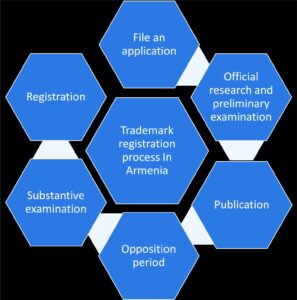TRADEMARK REGISTRATION PROCESS IN ARMENIA

The Armenian Parliament passed a bill setting amendments to the law “On non-cash payments” and a number of related laws. Under new changes, all transactions exceeding AMD 300,000 (approx. USD 700) made by individuals in Armenia are to be carried out noncash.
The regulations apply to payments for goods, sale, and purchase of property, use of goods, execution of work, provision of services, payment of salaries, etc. There are certain areas where the threshold is zero, such as budgetary receipts and payments, health care, education and legal services. For transactions, requiring state registration of rights, the threshold is 500,000 AMD.
For some payments, the regulations will come into force – in 2022 for the capital Yerevan, and in 2023 for provincial towns, and in 2024 throughout Armenia. In case of non-compliance with the requirements, the contract will be considered invalid․
According to officials, the AMD 300,000 threshold was chosen based on the results of studies and the actual volume of transactions. It is also noted that the transition to cashless payments is part of a plan to shift to a digital economy.
Armenia is not the only country in the world with cash payment limits.
In respect of regulations in Armenia, it should also be highlighted that the above-mentioned regulations are far too broad to cover all possible scenarios, necessitating a more precise approach in each circumstance. However, one thing is certain; they will create and promote a new non-cash payment culture in Armenia.
June 1, 2022. The ad hoc Committee in Edmond Khudyan and Arin Capital & Investment Corp v Armenia (ICSID Case No. ARB/17/36, Annulment Proceeding) is constituted in accordance with Article 52(3) of the ICSID Convention.
Its members are:
Christopher Greenwood (British), President;
Tina Cicchetti (Canadian/Italian), and
Ucheora Onwuamaegbu, PhD (British/Nigerian).
All members appointed by the Chairman of the Administrative Council.
Party Representatives:
Claimants:
Redbridge, Yerevan, Armenia
Dr. Gevorg Tumanov.
Hughes Hubbard & Reed LLP, Washington, D.C., U.S.A.
Mr. James Boykin, and Mr. Alex Bedrosyan.
Respondent:
Office of the Representative of the Republic of Armenia before the European Court of Human Rights, Yerevan, Armenia.